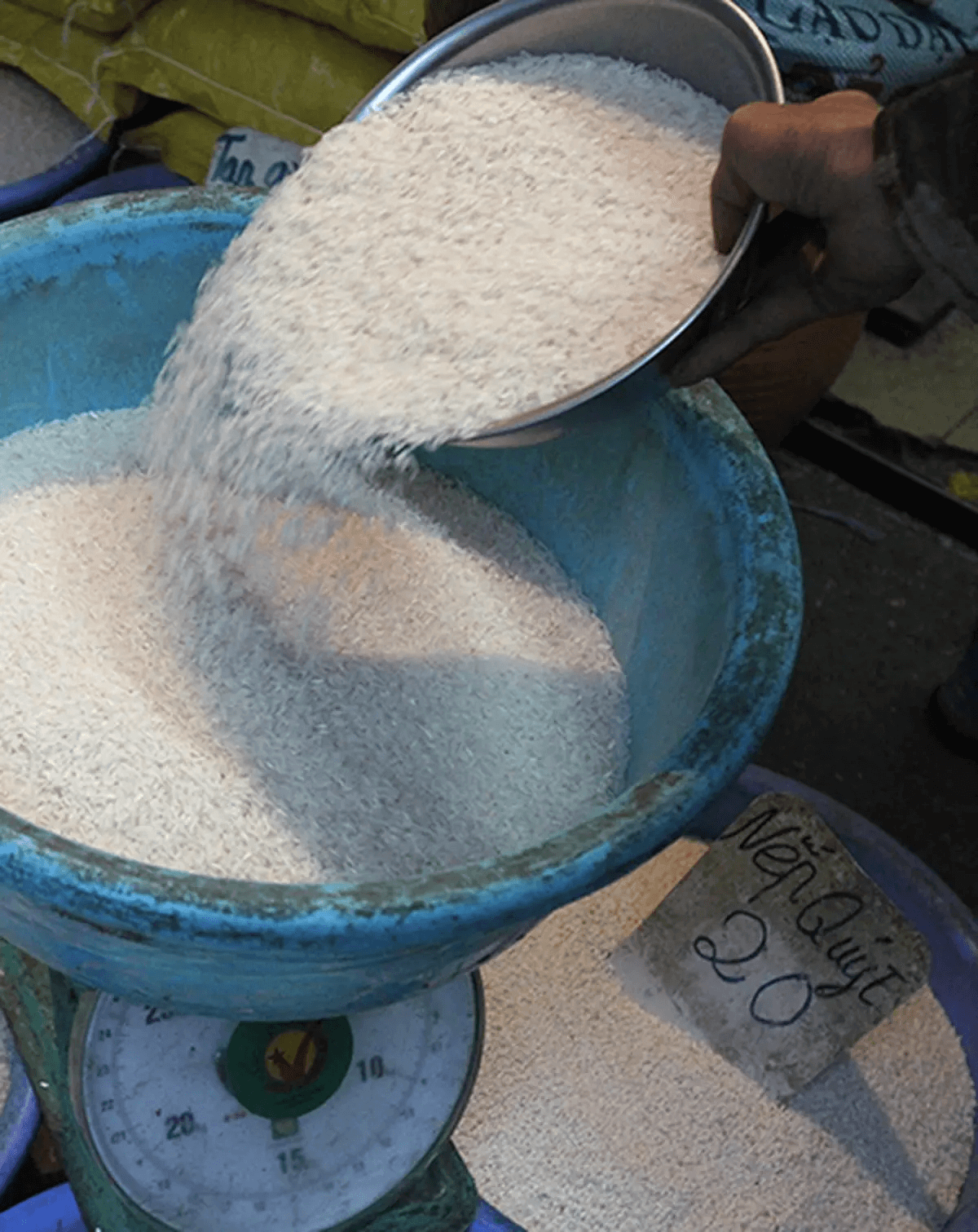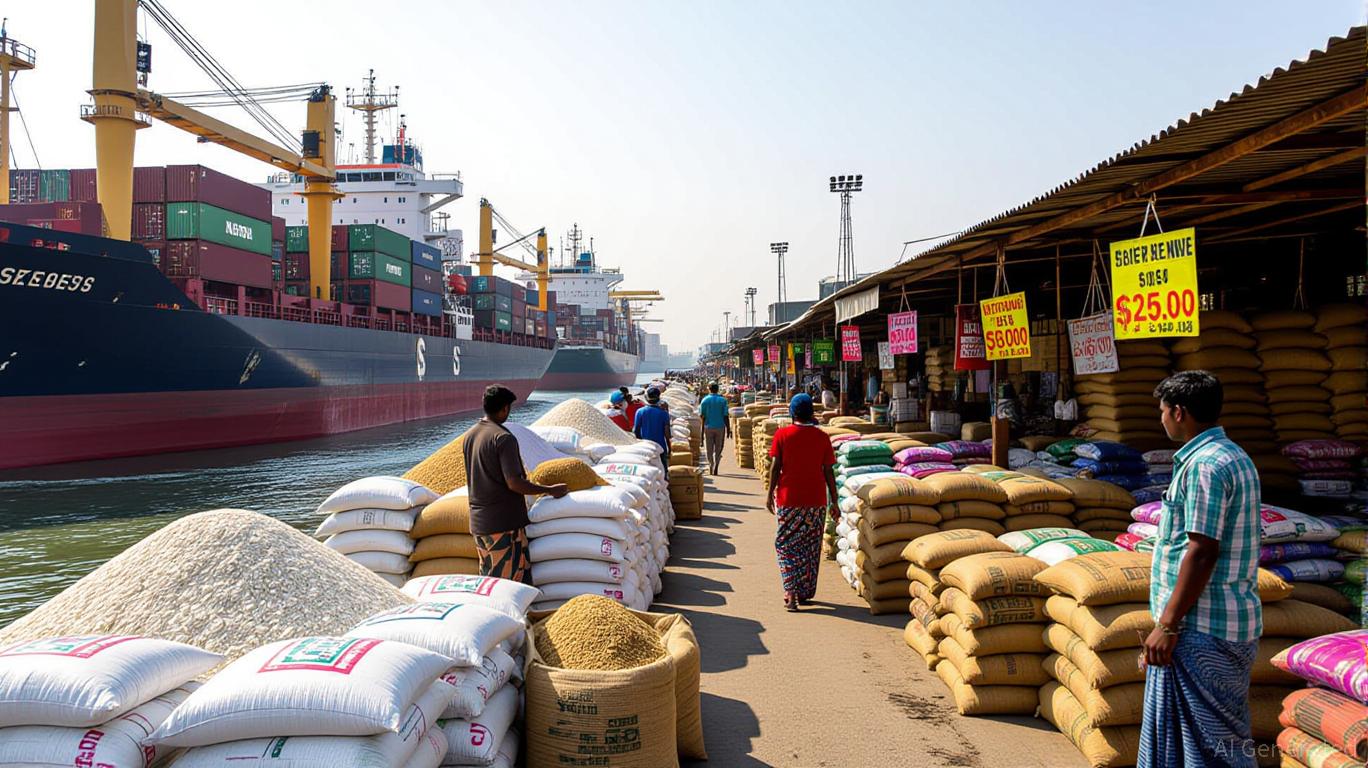Tags
EU giving GI tag to India for basmati can hit Pakistan exports badly, says IPRI policy brief
The Islamabad institute moots engaging Nepal and Bangladesh by Pakistan on curbing India’s GI claims
BY SUBRAMANI RA MANCOMBU

White basmati rice on vane and in the clay bowl on the light wooden background | Photo Credit: bonnynord
If the European Union (EU) gives the Geographical Indication (GI) for Indian basmati rice, Pakistan exports can considerably be hampered, says a policy brief prepared by the Islamabad Policy Research Institute (IPRI).
“Pakistan needs to actively engage other countries such as Nepal and Bangladesh based on the mutual interest of restricting India from claiming GI for those products which are generally considered the common heritage of the Indian Subcontinent,” said the paper “Basmati Rice and Geographical Indications: Options for Pakistan” prepared by Muhammad Shahzeb Usman.
Among the recommendations made are that Pakistan must fight legal battles in any country where India seeks GI tag for its basmati even if Islamabad has less market share. This will help Pakistan to fill the gap in that country in case of shortage of Indian rice.
Brief’s significance
The policy brief assumes significance in the wake of India and the EC holding six rounds of negotiations till now on arriving at a bilateral agreement on the GI tags issue and the EU republishing Pakistan’s application for GI tag to its basmati rice under a new clause.
These developments have left India with the advantage of getting the GI tag for basmati rice and gaining $500 million market share. Stating that a product’s prices soars when given a protected GI (PGI) tag, it said Pakistan could still produce basmati rice to get the same tag.
“PGI does not require that every part of the process of processing and production occur in a particular region. Such a requirement is mostly for the title of the ‘Protected Designation of Origin’,” the policy brief said.
Pakistan has the privilege of exporting basmati to the EU at zero tariff. As a result, its exports have more than doubled from 1.2 lakh tonnes to 3 lakh tonnes. Indian exports, on the other hand, have declined following EU strict standards on use of pesticides, it said.
Australian example
“If India is provided the GI for Basmati, there is a chance that Pakistan can incur heavy losses in terms of exports to the EU as the brand of Basmati shall increase the market share of India in the EU. The imposition of GI on Basmati from the EU shall also provide precedence for other markets that are increasingly following the trends in the EU such as the United Kingdom,” Usman wrote in the brief.
Pointing out that Australia had denied GI tag for Indian basmati, the brief said Pakistan could gain from the stand of third parties on India’s efforts to get GI tag by building a case internationally to protect the basmati GI tag.
“Some commentators claim it (Australia denying GI tag to Indian basmati) is due to the intense lobbying efforts of Pakistan. However, Pakistan did not even contest the case in Australia and the rejection of the Indian application was Australia’s own citing that the Indian case did not establish that basmati rice is only grown in India,” it said.
Nepal had opposed the GI tag for Indian basmati rice, claiming the fragrant rice has a unique heritage with Nepal.
Loopholes
“It is registered by Nepalese authorities as rice attributable to Nepal and has sufficient scientific evidence as proof,” the brief said, adding that Bangladesh has protested the Indian decision to register Jamdani (fine muslin textile), the Falzi mango, and Nakshikanta (embroidered quilt) as GI.
However, Usman conceded that there were loopholes in Pakistan’s case for GI tag in the EU, particularly claiming that the long-grain rice was grown in 48 districts. It will be difficult to prove.
“Similarly, Pakistan has also mentioned that Khyber Pakhtunkhwa is a growing region although that region is a “non-contiguous” area. Moreover, even Azad Kashmir is mentioned as a growing region. Areas such as Bahawalpur, Rahimyar Khan which are close to the Thar desert are mentioned although this shall expose the ‘lack of environmental determinism in the GI application’,” the policy brief said.
Pointing out that in 1998, the UK government initiated DNA testing for the purity of Basmati rice, it said Tarori and Karnal varieties were found to be of common heritage of both India and Pakistan.
“This is useful evidence for Pakistan. However, Pakistan lacks further scientific knowledge and language which is essential for building an extremely robust case adding to the previous UK examination,” Usam wrote.
Pak support in US case
The brief said India and Pakistan worked together to file a petition when the US Patent Office issued patents in 1997 for the three new strains of rice. The US Rice Federation argued that Basmati is a generic term referred to as aromatic rice. After an intense fight, the US Patent Office barred the agricultural company from using the term “basmati” and allowed the term “Texmati”.
“It was because of a campaign targeted to preserve basmati as an origin of the subcontinent as well as the encyclopaedic evidence presented under the auspices of the Agricultural and Processed Food Products Export Development Authority of India,” it said.
Pakistan has mostly supported India concerning the GI tag for Basmati and the endeavours to protect the GI of Basmati were mostly collaboration. Pakistan supported India’s recognition of PUSA 1 as Basmati which made up 60 per cent of Indian exports.
In future, the role of the South Asian Association for Regional Cooperation (SAARC) will be vital for resolving disputes among GIs, the brief said. The South Asian Free Trade Agreement (SAFTA) provides for members’ technical support with Intellectual Property Rights, and this inevitably requires cooperation on GIs.
“Past co-operations such as SAARC Energy Centre in 2005, the SAARC Food Bank in 2007 and the SAARC Seed Bank in 2011 can serve as a model for discussion on GI,” the policy brief said.
https://www.thehindubusinessline.com/economy/agri-business/eu-giving-gi-tag-to-india-for-basmati-can-hit-pakistan-exports-badly-says-ipri-policy-brief/article68200890.ecePublished Date: May 22, 2024






